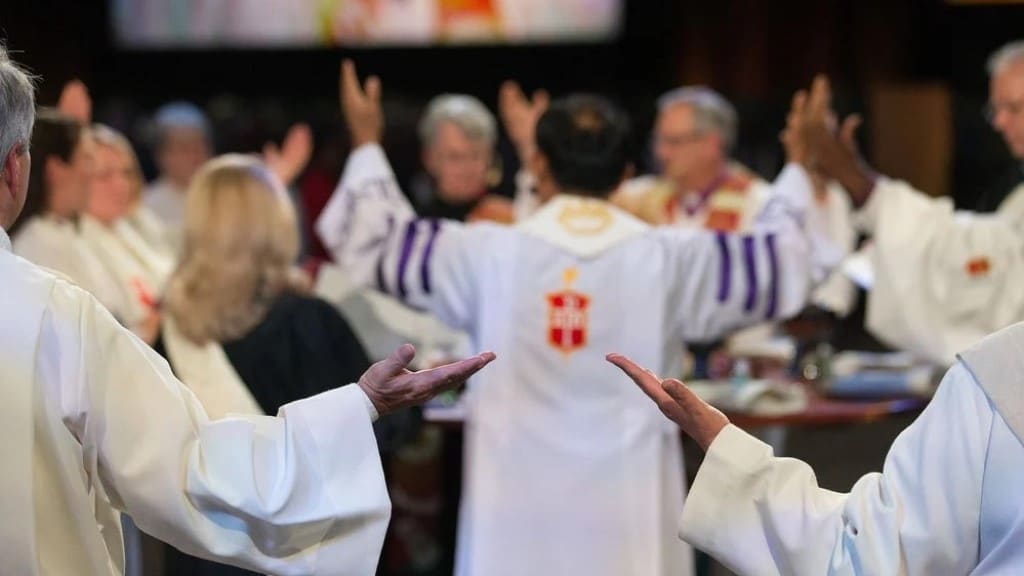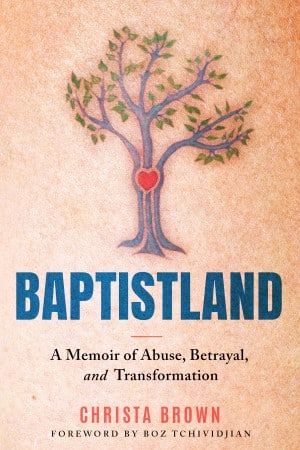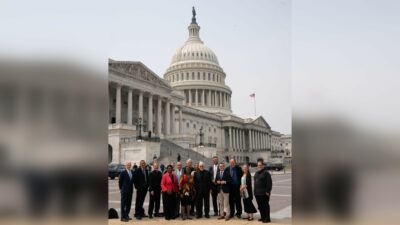United Methodist clergy have been through the wringer in recent years, with a worldwide pandemic, a church schism and the ongoing decline of one of the nation’s largest Protestant denominations.
Those stresses have likely taken a toll on their health, a new report shows.
A encuesta of 1,200 United Methodist clergy found that half have trouble sleeping, a third feel depressed and isolated, half are obese, and three-quarters are worried about money.
Almost all of those measures have worsened in the past decade, according to the study from Wespath, which administers benefits for pastors and employees at United Methodist institutions.
Overall, United Methodist pastors feel worse and worry more than they did a decade ago.
Your tax-deductible gift helps our journalists report the truth and hold Christian leaders and organizations accountable. Give a gift of $30 or more to The Roys Report this month, and you will receive a copy of “Baptistland: A Memoir of Abuse, Betrayal, and Transformation” by Christa Brown. To donate, haga clic aquí.
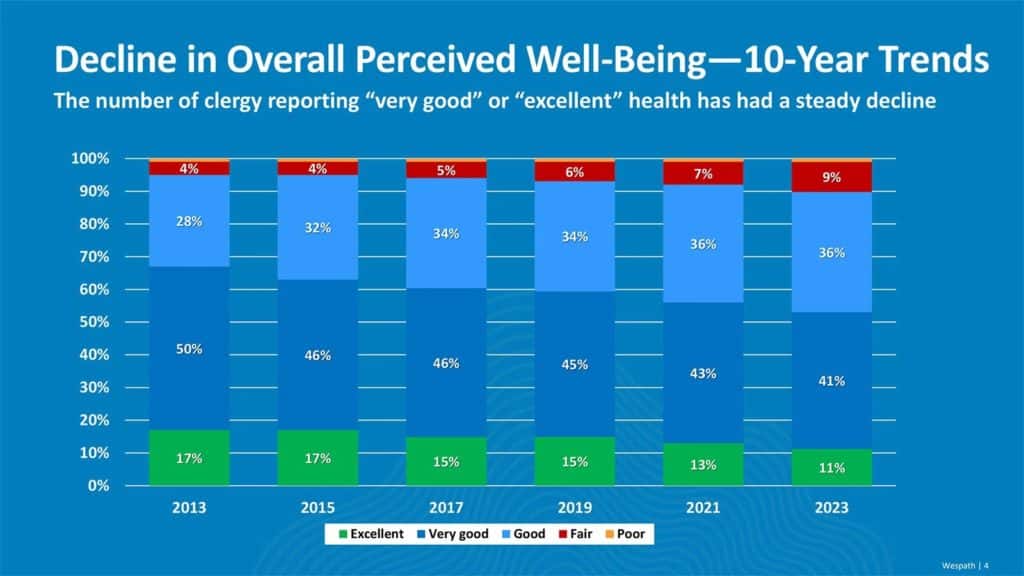
“Even though we saw some areas of well-being improve in 2023 after very dismal results in 2021, the overall 10-year lookback tells us that clergy well-being, which was a problem a decade ago, is an even bigger problem today,” said Kelly Wittich, director of health and well-being at Wespath, in announcing the survey’s findings. “We see that clergy struggle with well-being compared to their secular counterparts, in no small part due to the often unrealistic demands placed on clergy from multiple directions.”
The study found that 11% of pastors said they are in excellent health, down from 17% in 2013, while 1 in 10 (9%) said they are in fair health, double the number from a decade ago.
The report did not indicate whether clergy age might be a factor affecting health outcomes.
More than half said the pandemic negatively affected their emotional (54%) and social health (52%). Fewer said their spiritual (26%) or financial health (23%) got worse.
Pastors also said their sense of spiritual vitality has improved in the past two years — with many feeling they have a vital relationship with God (78%) and feel God’s presence when doing pastoral visits (73%). Fewer feel God’s presence at church-related events (68%).
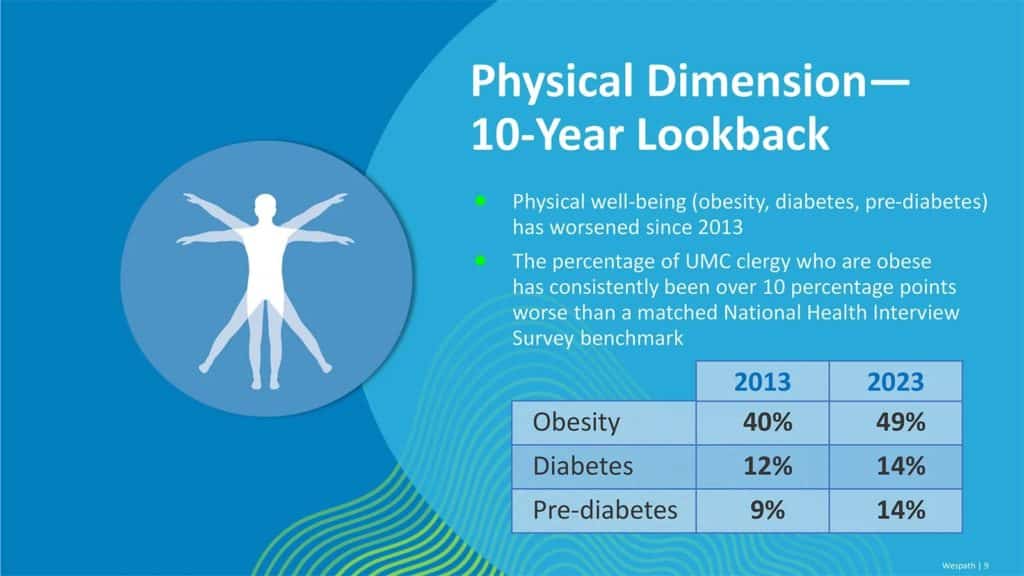
The study found pastors have significant health challenges, including 14% with diabetes, another 14% with pre-diabetes and half with obesity (49%). All three measures have gone up in the past decade.
One in 10 said they suffer from depression, while a third said they have symptoms of depression. A third feel isolated at work or feel overtaxed by their congregation. More than half (52%) said they experience church-related stress, up from 46% in 2013.
Full-time pastors did say their workloads have decreased, with 27% saying they work more than 51 hours a week, down from 42% in 2013.
Half of the pastors said they are not “confident they are on track for a comfortable retirement.”
Fatigue was one of the biggest challenges pastors reported, with 52% reporting they had trouble sleeping while 69% said they feel tired or have low energy. By contrast, only 40% said they had trouble sleeping in 2013, while 59% felt tired or had little energy.
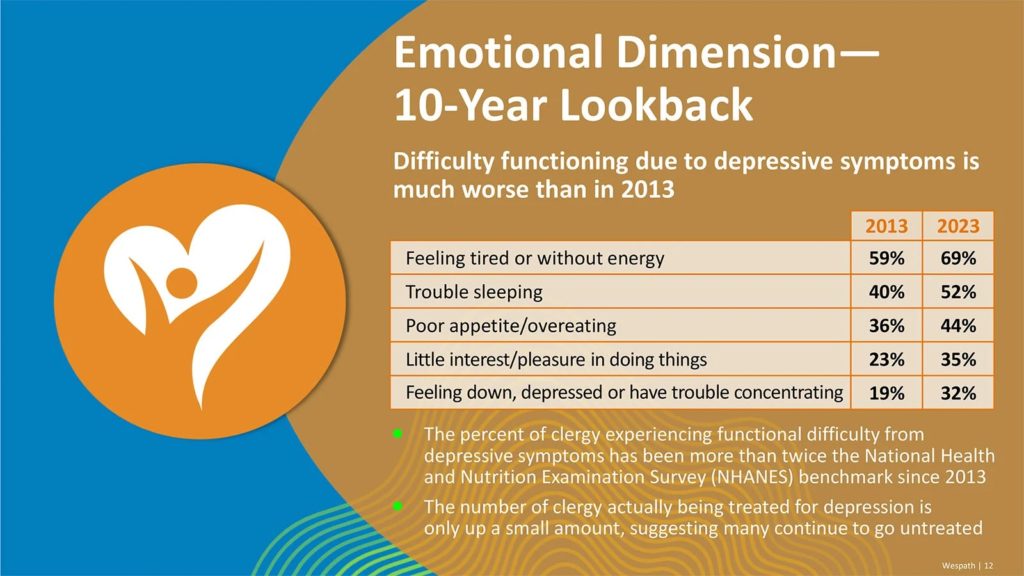
According to the study, older pastors had more problems with their physical health, while younger pastors had more concerns about stress and depression. Men had more diabetes and lower spirituality than women. Women reported more asthma, autoimmune conditions and stress than men. Black clergy had more hypertension and diabetes but lower levels of stress and depression.
Rural clergy had more physical ailments, while urban pastors reported lower spiritual health.
About a third of pastors said they dealt with conflict or difficulty due to the current schism in the United Methodist Church. Since 2019, more than 6,200 congregations have disaffiliated with the denomination as a result of a long-running dispute over church teaching about sexuality.
 Bob Smietana es reportero nacional de Religion News Service.
Bob Smietana es reportero nacional de Religion News Service.




